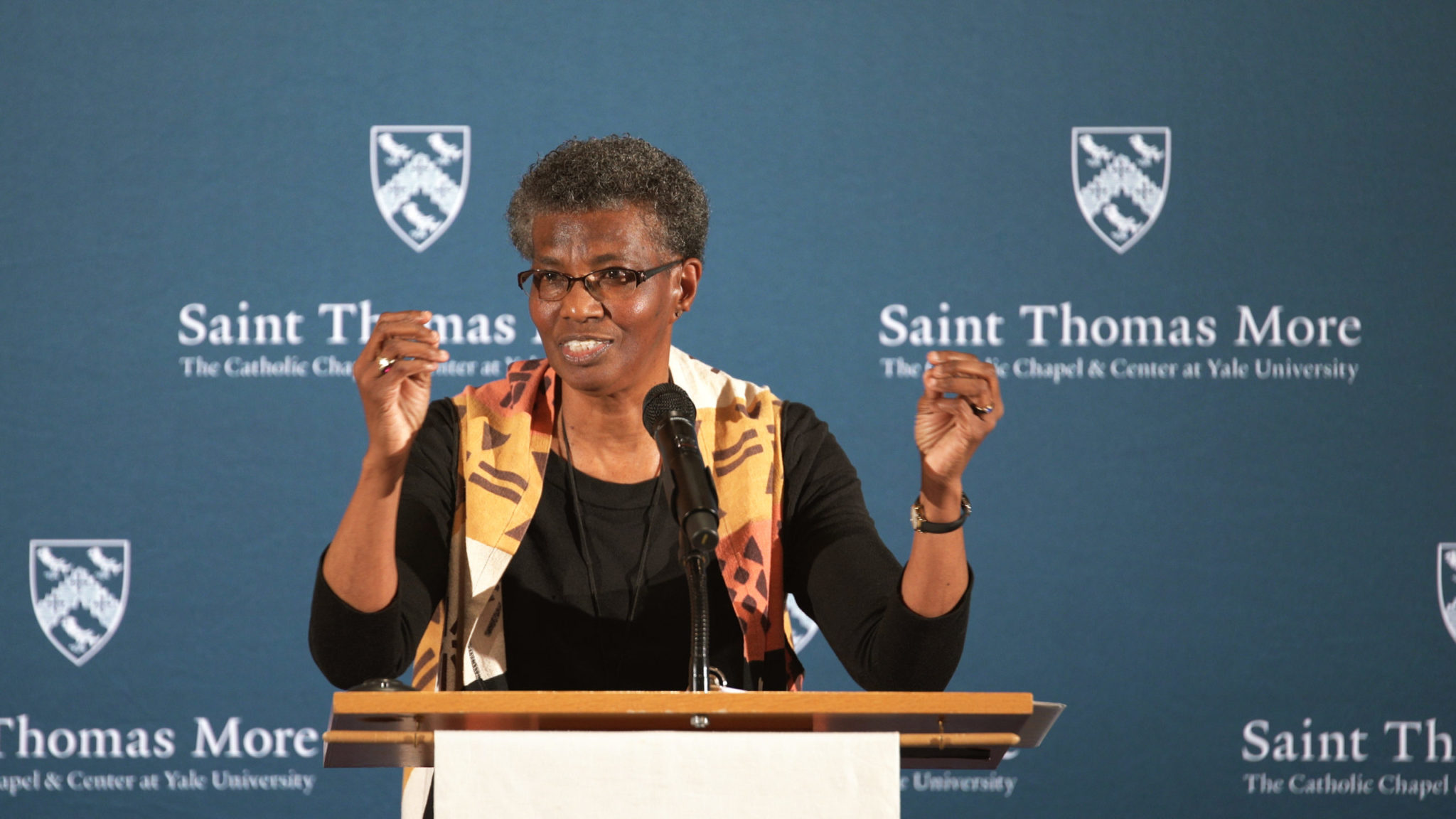
Courtesy of Robin McShane
Patricia Chappell, who is a sister of Notre Dame de Namur, told the crowd during her keynote lecture for Black History Month on Thursday that her religious life began just blocks away at New Haven’s St. Martin De Porres Parish from the lecture room in which she delivered the keynote address.
On Thursday, Chappell discussed the topic “Is Building the Beloved Community an Impossible Dream?” at St. Thomas More’s annual Black History Month Lecture. Chappell is the first African American executive director of Pax Christi USA, the National Catholic Nonviolent Peace and Justice Movement located in Washington, D.C. During her talk, Chappell emphasized the individual duties each person has to reform the Roman Catholic Church and space to become a more inclusive space. She discussed in her speech the inherent privileges that come from upbringing and background.
“If you’re white, you are privileged,” Chappell said. “If you have an education, you are privileged. If you have an Ivy League education, you are very privileged … and the list goes on and on. You will always benefit my sisters and brothers from your whiteness, for it is the air you breathe, and it is a dimension of your DNA. What you have to begin to look at is what is called internalized racial superiority. While there’s nothing inherently wrong with privilege, it is the use of that power that will make you either a person of integrity or ruthless.”
As Chappell grew up, she said she “questioned the authenticity of the Catholic Church” because she regarded Catholicism as an “oppressive kind of religion, particularly for people of color, specifically African Americans.”
Chappell said that she struggled with the lack of “saints who looked” like her as well as the lack of “exposure of knowing black priests” growing up. She explored other forms of Christianity by attending Protestant and Baptist churches, as well as other religions such as Islam, before deciding to return to the Catholic Church.
“I realized that the Roman Catholic Church was not a white man’s religion, and I came to understand that as a person of color, as an African American, we certainly brought our gifts to this church as well,” Chappell said.
This lecture is a part of the annual Black History Month lecture held at St. Thomas More. Past speakers have included Robert Green, assistant professor of religious studies at the College of the Holy Cross, and theologian M. Shawn Copeland. St. Thomas More has had several named lectures along with annual or biannual lectures and celebrations related to the “diverse community which they serve.” The invited guest lectures typically occur Sunday evenings at 6 p.m. after St. Thomas More’s 5 p.m. mass.
Chappell holds a M.S.W. from the Catholic University of America and is a licensed social worker in Washington, D.C. She has also been trained by Crossroads in organizing and anti-racism training and serves as the national co-chair on her community’s anti-racism team.
“Sister Patricia grew up in New Haven and is engaged in Catholic justice work, which made her a natural to invite,” said Jennifer Schaaf, assistant chaplain at St. Thomas More.
During the lecture, Chappell emphasized that when Catholics attend church on Sunday mornings, they should be aware that “it still is one of the most segregated times in this country.” She asked attendees to “imagine if Jesus had decided to stop” on “who is worthy to partake.”
“I don’t want to stand up here and to give you an impression that only white folks have homework to do to dismantle their internalized racial superiority,” Chappell said. “Those who are people of color have our own work to do. We also have to examine how our internalized racial oppression impacts our relationship with each other … [because] some of us people of color have internalized the negative messages related to our own racial groups. While we begin to pull down one another, we try to change how we look and who we are [because] we oftentimes see that as a negative, and we begin to engage in those same kinds of behaviors that are negative.”
During the lecture, Chappell expressed her belief that the beloved community can be attainable. She expressed her enthusiasm towards “millennials and young adults who come from different races” who have a strong desire to “not only talk the talk” but “walk.”
Khue Tran | khue.tran@yale.edu







